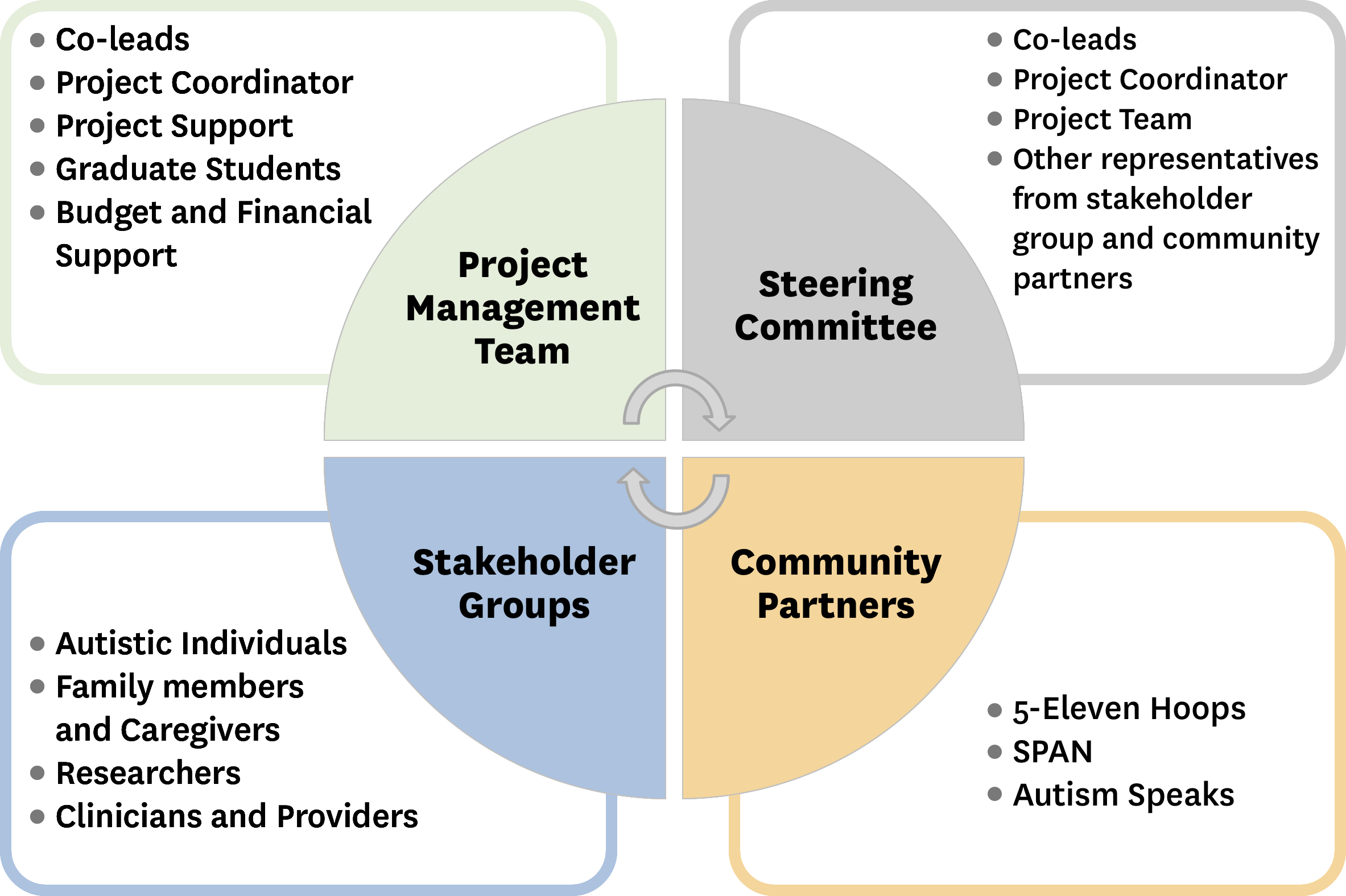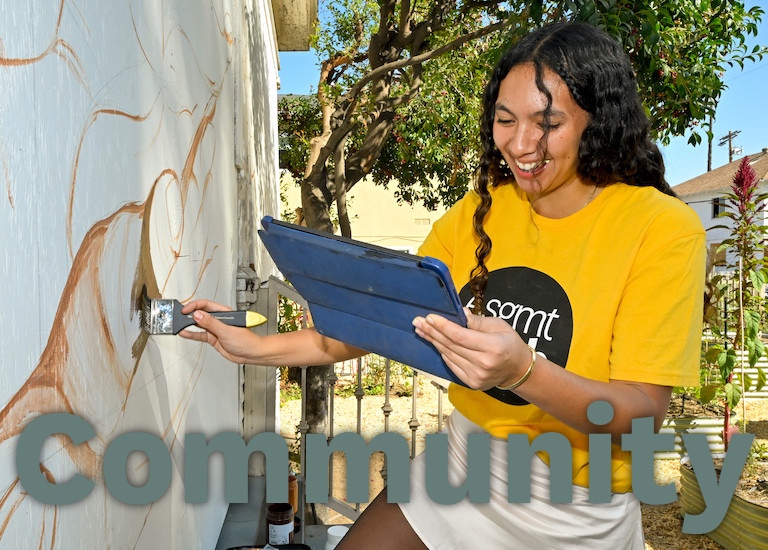TRUST
Coming Soon
The TRUST Project was co-ordinated by USC Chan’s Boundary Crossings lab. The Boundary Crossings lab website is in development, and will be available soon.
Project Overview
The TRUST (Transforming Research: Understanding Experiences in ASD, Stakeholders Working Together) Project was grounded in the participation of four stakeholder groups including family members and caregivers, autistic self-advocates, clinicians and providers, and researchers, as well as three community partner groups, The Sensory Processing and Autism Network (SPAN), 5-Eleven Hoops, and Autism Speaks. The foundation of this project was informed by our prior and current ethnographic and phenomenological studies and sensory processing research programs. The primary objective of this project was to develop a sustainable capacity building alliance of stakeholders with expertise in sensory processing related to ASD to inform and impact research endeavors. This project had four major aims:
- Aim 1: Establish a diverse alliance of self-advocates, family members and caregivers, clinicians and providers, and researchers.
- Aim 2: Determine research priorities.
- Aim 3: Produce resources and distribute recommendations.
- Aim 4: Develop a plan for sustainability and examine long term impacts.

TRUST Project Groups
TRUST Project Team and Stakeholder Group Members
Project Team
Self-Advocate Stakeholder Group
- Amirah Ali
- Amanda Alonzo
- Carl Gonzalez
- Raul Muñoz (Co-Lead)
- Alex Murtaugh
- Ascary Navarro
- Peter Tran
- Joshua Welsh
- Wesley Witherspoon
Family Member/Caregiver Group
- Debi Anderson
- Jennifer St. Jude (Co-Lead)
Clinician Stakeholder Group
Researcher Stakeholder Group
- Grace Baranek
- Stefanie Bodison
- Brian A. Boyd
- Carissa Cascio
- Matthew S. Goodwin
- Mary Lawlor
Community Partners
Project Accomplishments
Stakeholder Groups
The TRUST project developed a sustainable capacity building alliance of stakeholders with expertise in sensory processing related to ASD to inform and impact research endeavors. We accomplished this aim through the generation of our autistic self advocate, family and caregiver, clinician and service provider, and researcher stakeholder groups. Each stakeholder group consisted of 7-10 members who self-identified as a member of that particular stakeholder group. Attention was paid to ensure that the members of each stakeholder group represented a diversity of lived experiences related to sensory processing and autism.
Research Priorities
Throughout the TRUST project, our different stakeholder groups met 5-6 times to generate and discuss research priorities related to ASD and sensory processing. This process required that each stakeholder group and the project team identify key sources of information including research publications, public press, and available resources such as toolkits to evaluate the state of the literature on sensory processing and ASD. This served as the foundation for the process of generating research priorities. Each stakeholder group produced a list of recommended research priorities from their respective perspectives followed by ranking each priority to generate a list of the group’s top five priorities.
Narrative Stories from Stakeholders
Throughout the TRUST project, we utilized narrative engagements and strategies to develop trust between different stakeholder groups and have found that the use of narrative has enabled cross learning and dialogue. A narrative structure for our stakeholder meetings helped to frame individuals’ real-life experiences and elicit multiple perspectives. Some of our stakeholder group members also provided short written stories and stories through video interviews related to ASD and sensory processing, barriers and facilitators to research engagement, and the lessons learned from being a part of a stakeholder engagement project. Participants including autistic self-advocates, researchers, family members and caregivers, and clinicians shared stories about their experiences with sensory processing and overall engagements within the TRUST project.
National Conference
This project culminated with a virtual national conference on November 4th and November 5th, 2022. Conference registrants included autistic self-advocates, researchers, family members, caregivers, clinicians, students, and other members of the larger community. Many individuals in attendance identified as being a part of multiple stakeholder groups. The purpose of this conference was to highlight the multiple perspectives of different stakeholder groups that have contributed to our understanding of lived experiences throughout all phases of the project and to mobilize this knowledge to the community in order to improve the lives of autistic individuals.
Funding
This project was funded by the Eugene Washington PCORI (Patient Centered-Outcomes Institute) Engagement Award Program (PCORI #19922-USC).
⋯







